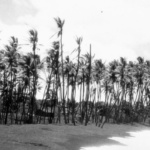Review by Mindy Pennybacker of Under the Volcano: The People of Kalapana, 1823 to 2010
The Honolulu Star-Advertiser, February 25, 2007
URL: http://www.staradvertiser.com/2017/02/26/features/book-reviews/hawaii-books-examine-ravages-of-western-disease-kalapana-village/
“Oral histories of Native Hawaiians who grew up in the rural seaside village of Kalapana, Hawaii Island, in the 2oth century are the arresting heart of ʻUnder the Volcano: The People of Kalapana, 1823 to 2010′ by Charles Langlas, a former associate professor at the College of Hawaiian Language at the University of Hawaii at Hilo, and 18 kupuna, listed as coauthors. The kupuna told their life stories to him and his students from 1987 to 1990, when the village was destroyed by lava flowing from Kilauea.”
“Looking back to the Great Mahele of 1848 to 1855, when ʻthe most valuable land soon passed into the hands of white sugar planters,ʻ Langlas writes, ʻKalapana remained Hawaiian because it was lava land, too poor for plantations.'”
“The book’s focus is how people lived in this predominantly Hawaiian community in the 1920s to 1930s, when the kupuna in the interviews were young. Theirs was a close-knit community that subsisted on fishing, cultivating taro and sweet potato, tending livestock and weaving lauhala mats and hats.”
“ʻThe kupuna described their childhood as a time of hard work, but not of hardship,’ Langlas writes, noting the unfairness and cultural bias of the ʻlazy Hawaiian’ sterotype promulgated by white society beginning in the 1930s.”
“When they weren’t in school, the children learned life skills in the traditional Hawaiian way by watching their elders work. Six complete interviews, filled with lively, detailed reminiscences in the kupunas’ own words, are wonderful to read. Picking opihi, ʻyou only taking the big ones, leaving the small ones’ so when you went back ʻyou still have,’ says James Kaleikaapuni Ahia Sr. When the four to five canoes came in, ʻthey share the opelu (with) anybody that’s on the sand.”ʻ
“His grandparents taught him that if a shark appeared when you were fishing, it was a warning to stop, ‘maybe just saying that, ʻOh, you have enough already.”ʻ
“This engrossing portrait of an isolated village and its warm, self-reliant people is abundantly illustrated with maps and 37 photographs, some going back to 1926 with such starkly beautiful sights as Waiakolea pond, in whose clear waters children swam, canoe landing simprovised on lava-rock sea cliffs, and the since-collapsed Kaimu (black sand) beach [that] was fenced by towering coconut trees.”
